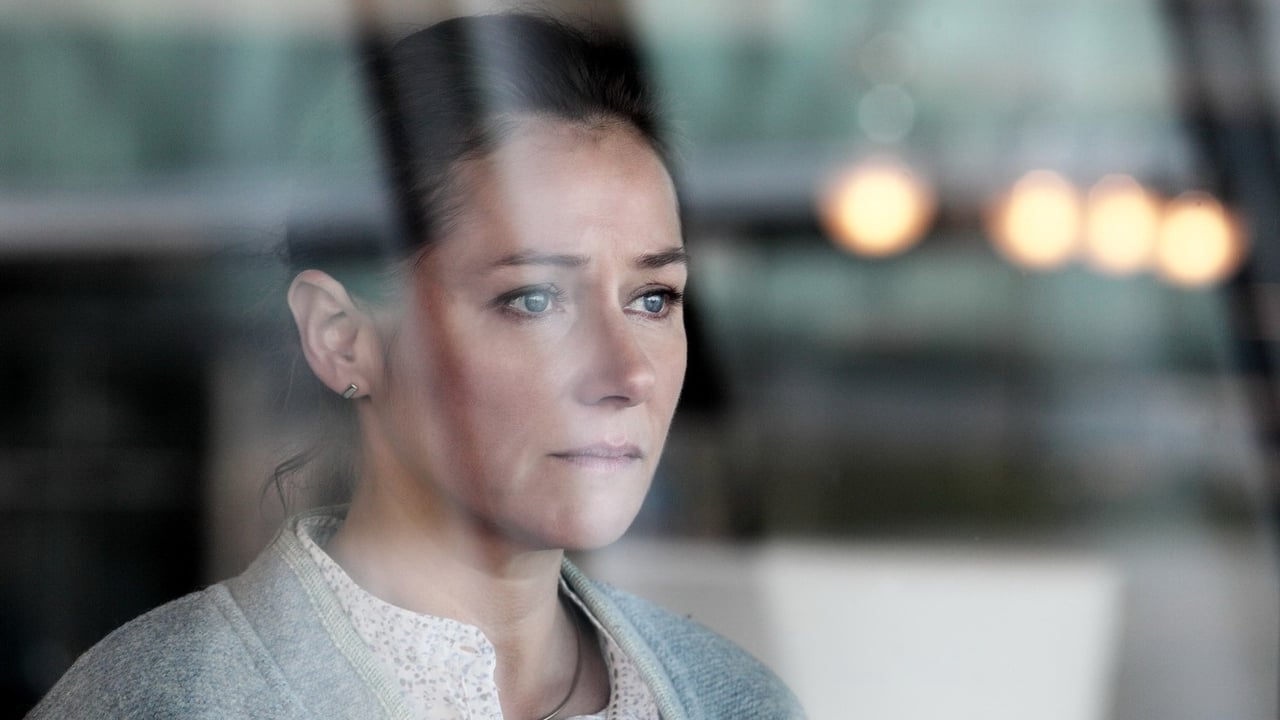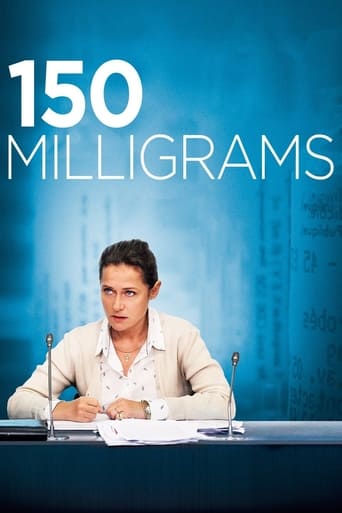Phonearl
Good start, but then it gets ruined
Solidrariol
Am I Missing Something?
ActuallyGlimmer
The best films of this genre always show a path and provide a takeaway for being a better person.
Alistair Olson
After playing with our expectations, this turns out to be a very different sort of film.
krocheav
Unlike many other lesser foreign films of the last few decades, there's no awards fanfare for this earnest French production, that tells the important true story of the battle fought by a small 'provincial' medical team - against a Pharmaceutical giant peddling a deadly medication. It almost seems if your intentions are honorable in modern Film Festivals they don't particularly want to know you. While the movie's style may not always be agreeable to all tastes (with its detailed analysis), it far outshines many I've seen given rave reviews by festival critics. It certainly is an honest one - with the entire cast and crew working hard to bring this powerful true story to life. Particularly noteworthy are Sidse Babette Knudsen, as Irene Frachon who waged a near single-handed war against powerful odds. Benoit Magimel is her equal, playing her nervous collaborator. All up, this brave movie is deserving of better praise than some have given and, is well worth viewing by audiences concerned with bringing life-saving truth to the wider world.
Unlike other endless MA+ and R rated entries that premiered this month (and will run several times during the month) this entry will be hard to find (if not wasted) as World Movies will only run it once! What else could we expect from SBS and their cheap world movies channel!
Andres-Camara
I've seen it to see what the film was like and see what happened, but let's not go any further. In no way is it a great movie. We all know movies of this type that are great movies, apart from why Sidse Babett Knudsen is great, as always, has nothing more.Photography is like a video camera. It does not bring anything, nor is it pretty.The direction aside from making a long movie, does not stand out for anything else. Neither makes beautiful plans nor narrates.In short, one more movie
Ruben Mooijman
It is tempting to compare 'La fille de Brest' with 'Erin Brockovich'. Both are about female whistle-blowers, fighting the establishment with all they have. Both are based on actual events. Both are outsiders, initially not taken seriously by their opponents. Both have a star actress in the title role.But there is an important difference. In 'Erin Brockovich', the title character is much more one-dimensional than in 'La fille de Brest'. Danish actress Sidse Babett Knudsen plays small-town pulmonologist Irène Frachon as an intelligent and passionate woman, who has qualities as well as weaknesses. Her performance really carries the movie.Doctor Frachon accidentally discovers that some patients suffering from a cardiac disorder also take the drug Mediator against obesity. She suspects that the disorder is a fatal side-effect of Mediator, and embarks on a crusade to prove her point. That's easier said than done, because even with the help of a professor she has a hard time writing a scientifically solid paper. In the sample of patients treated in her hospital, in the small seaside town of Brest, she finds a remarkable correlation between Mediator use and the cardiac disorder. But the drug company and the authorities think the sample is too small to be scientifically acceptable.The film has not chosen the easy way: the story doesn't simplify things too much. In fact, the start of the movie is not the best part because the viewer feels bombarded by technical information. Later on, the story moves forward more smoothly when Frachon and her team hire a lawyer to represent the patients, find an editor to publish a book about the affair and approach a journalist to write a scoop about it. Also, the involvement of an insider from the health insurance agency gives the story a nice extra dimension.The film clearly attacks the heavy involvement of the medical industry in the supervision process. According to the end credits, things have changed in France after the Mediator scandal. It would have been a happy end, if several of doctor Frachon's patients wouldn't have lost their lives because of Mediator. Her reading their names aloud during a live television interview, is one of the finest moments in the film. The message is clear: it's all about them, not about reputations, profit or statistics.
Frank Nacsa
Physician realizes that there is a link between patient deaths and a commonly used diabetes drug. She naively thinks that pointing this out will lead to action to pull the drug. But instead, she encounters bureaucratic roadblocks, manufacturer denial, threats of lawsuits and to her career, as well as to her colleagues, and of course the always used need for further study. Basically greed on the part of drug maker, which has money for access to top specialists/consultants doing their bidding, and infiltrates agencies supposedly entrusted with protecting the public. Will not give away more here.Excellent not just as a social statement, but also for drama and suspense, as well as a slice of the human dimension in these types of stressful situations that a person may encounter. My comments based on seeing the film at its World Premier at TIFF. Additional comment is that the director at the Q&A after the film stated that the film is very faithful to the original story.

